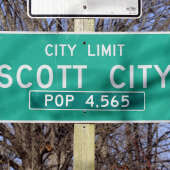- Joy and happiness — distinct emotions or two sides of the same coin? (8/17/24)
- The value of a friend (8/3/24)
- Rejoice that your name is written in heaven (7/20/24)
- Cup or saucer (7/6/24)
- Three reasons to take vacation to the glory of God (6/22/24)
- Five reasons to speak positively (6/8/24)
- Remember (5/25/24)
The biblical balance between work and rest
Labor Day became a federally recognized holiday in 1894. Traced to strikes and rallies advocating for shorter work days and better working conditions, Labor Day originally honored the American worker. Today, Labor Day has become synonymous with sales, barbeques with family and friends and the unofficial end of summer. Thinking of work and rest, it feels appropriate to remind ourselves of the biblical principles that we were created to work and that life is more than work.
Genesis chapters one and two describe the creation of humanity. Adam and Eve, both formed in the image of God, were given the responsibility over the Garden of Eden. They were given the responsibility to be fruitful, multiply, fill the earth, subdue, and have dominion over it. The effect of their entrusted charge was to cause the earth and all life within it, including each other, to thrive. Working is hardwired into our created beings.
The curse of the fall not only makes work painful, it can cause work to become all-consuming. In the book "The Rest of God", Mark Buchanan captures the turmoil and tension of work, writing, “We spend most of our lives working. And when we’re not working, we spend most of that time thinking about it – complaining about it, fretting about it, preparing for it, recovering from it. We feel guilty when we don’t do enough, resentful when we do too much.” (Mark Buchanan, "The Rest of God; Restoring Your Soul by Restoring Sabbath" [Nashville; W Publishing, 2006], 16.)
Work is good we must also stop and remember that your life is more than your work. You are more than the answer to “What do you do?” Your life matter more than the accumulation of goods and accolades. We were formed to labor, but we were commanded to rest. Rest reminds us that while our muscles were designed to expand and contract, our minds formed to think and create; we were made for more than work.
We were created to get dirt under our nails. We were formed to design creative solutions to complex problems. We were equipped to extend and contract our muscles both with tools of the hand and for the mind. The creation order reveals its design for work in atrophied muscles that are absent of their intentions. While the writer of Ecclesiastes laments about the meaninglessness of work, chasing after the sun, he also expresses the blessing of labor, invoking all to labor with all your might in whatever your hands find to do. We must have work and rest: creation and recreation.



























Respond to this story
Posting a comment requires a subscription.